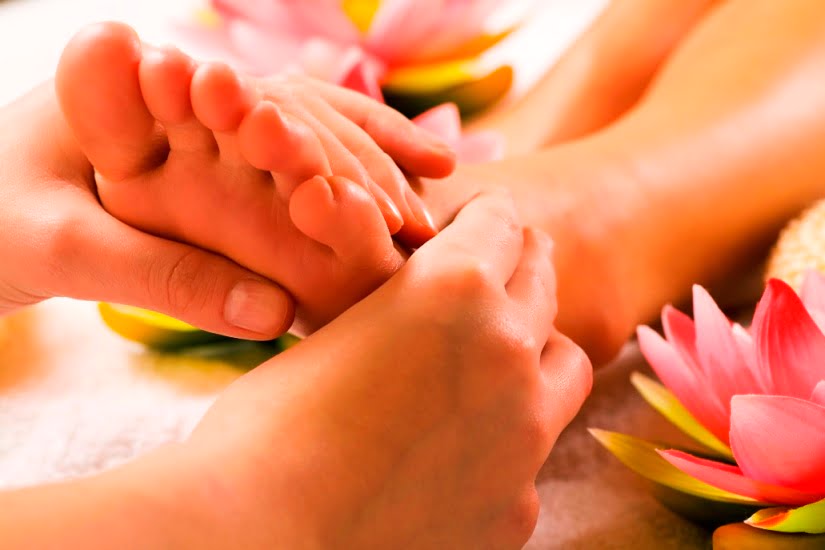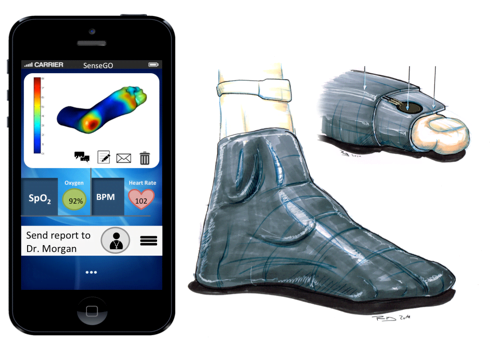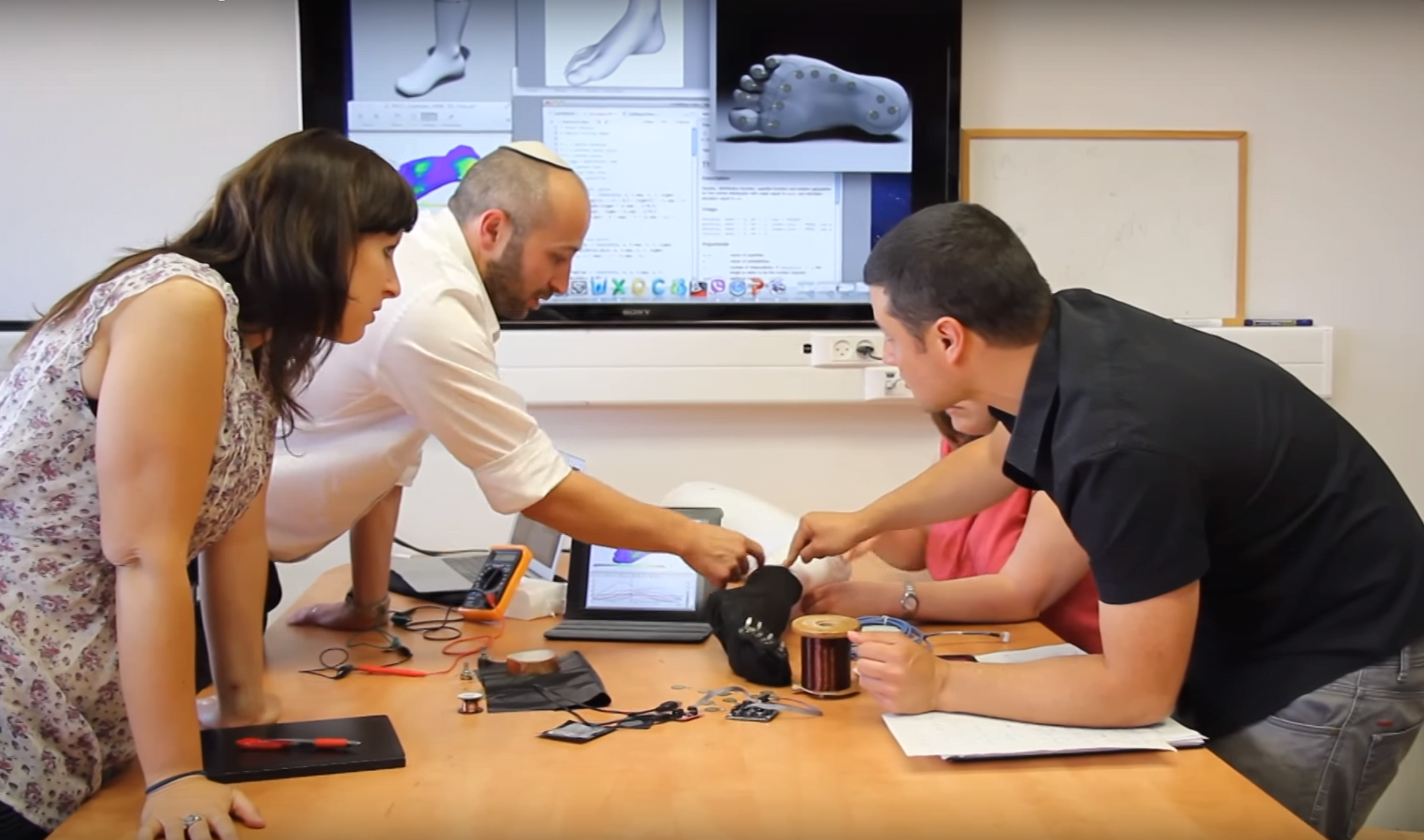Roughly 130 million diabetics around the globe suffer from diabetic neuropathy, a type of nerve damage associated with the development of foot ulcers in patients with diabetes. Resulting from anatomical deformation, excessive pressure and poor blood supply, it often damages nerves in patients’ legs and feet.
SEE ALSO: Israelis, Palestinians Join Forces To Explore Local Flowers To Combat Cancer, Diabetes
Diabetic neuropathy is also the leading cause of amputation, which leaves many diabetics handicapped, and is costing the US economy alone more than $10 billion annually. Diabetic patients are encouraged to get regular checkups to monitor for the increased pressure and ulceration that can eventually require amputation. However, ulcers are only diagnosed after they occur, meaning that patients require healing time, which dramatically increases healthcare costs.
But now, an Israeli team of scientists at the Hebrew University of Jerusalem is working on a unique solution to solve this problem.
“This is a significant medical problem that affects the lives of millions. We thought there must be a way to avoid these wounds altogether,” Danny Bavli, the group’s lead engineer, said in a statement.
SEE ALSO: Dario Turns Diabetics’ Smartphones Into Trendy Glucometers
To address this challenge, Bavli partnered with Sagi Frishman and Dr. David Morgenstern, a leading orthopedic surgeon at Israel’s Hadassah Medical Center. Together with members of the Hebrew University’s BioDesign group, they developed SenseGO, a machine-washable sock containing dozens of micro-fabricated pressure sensors.
With SenseGO, changes in pressure due to incorrect posture, anatomical deformation or ill-fitting shoes are registered using electrical signals that are relayed to a smartphone app, which in turn informs the patient of developing risks.
According to Prof. Yaakov Nahmias, BioDesign’s program director, “this is a classic mobile health approach. By giving patients and their families the tools they need to prevent the development of ulcers, we can dramatically reduce healthcare costs related to diabetes.”
BioDesign: Medical Innovation, a multi-disciplinary, team-based approach to medical innovation, is led by Nahmias and Prof. Chaim Lotan of the Hadassah Medical Center. Other members of the BioDesign SenseGO team include Inbal Boxerman and Yael Hadar, MBA students at The Hebrew University of Jerusalem. The innovations produced by program participants are commercialized by Yissum, the technology transfer company of the Hebrew University of Jerusalem, and by Hadasit, the technology transfer company of the Hadassah Medical Center.
Photos: The Hebrew University of Jerusalem, Norwalk Hospital
Related posts

Editors’ & Readers’ Choice: 10 Favorite NoCamels Articles

Forward Facing: What Does The Future Hold For Israeli High-Tech?

Impact Innovation: Israeli Startups That Could Shape Our Future






Facebook comments